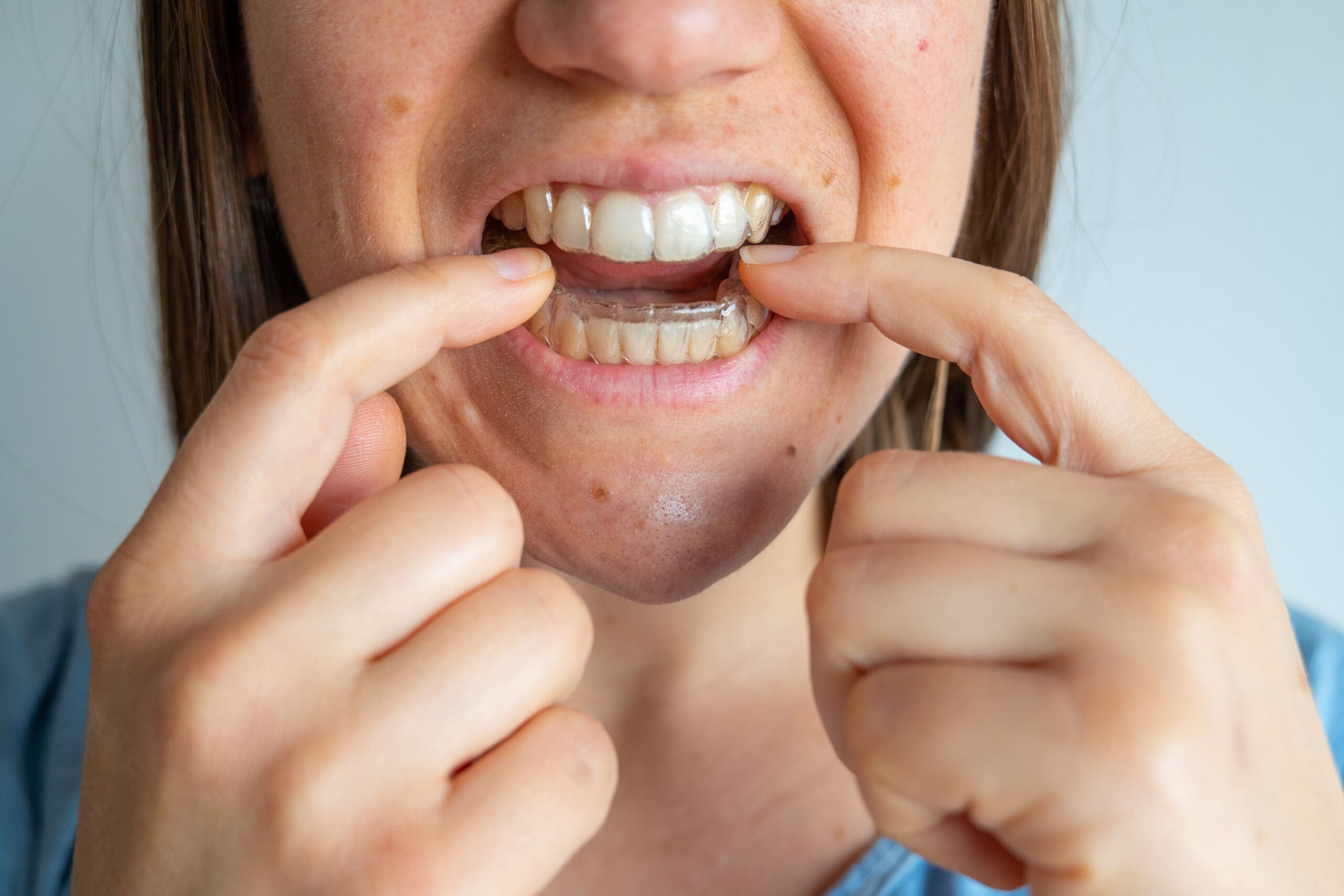Teeth grinding, also known as bruxism, is a common issue that affects many people. It can happen at any time, day or night, and over time, it can have a significant impact on your teeth’s health.
If you’re waking up with jaw pain, tooth sensitivity, or worn-down enamel, you might be one of the many people dealing with bruxism, which affects approximately 21% of adults during sleep and 23% while awake, globally.
Let’s explore how retainers can help you preserve your smile, stay comfortable, and support long-term oral health—one small step at a time.
Teeth grinding is a condition where a person unknowingly grinds or clenches their teeth. This can happen during the day or at night (often referred to as sleep bruxism). The act of grinding typically involves the back-and-forth movement of the teeth, and clenching refers to the forceful biting down of the teeth.
You might not always be aware that you’re grinding your teeth, especially if it happens while you’re asleep.
However, there are several signs that may indicate you’re dealing with bruxism, such as:
The causes of bruxism can vary from person to person, but common triggers include:
While teeth grinding may seem like a minor annoyance, it can lead to significant orthodontic issues over time if left unaddressed. The continuous pressure exerted on your teeth can cause:
 Grinding can wear down the enamel, the protective outer layer of your teeth. This can lead to increased tooth sensitivity, making it harder to enjoy hot or cold foods and drinks. In severe cases, the damage may require restorative treatments like crowns or fillings.
Grinding can wear down the enamel, the protective outer layer of your teeth. This can lead to increased tooth sensitivity, making it harder to enjoy hot or cold foods and drinks. In severe cases, the damage may require restorative treatments like crowns or fillings.
The muscles in your jaw work overtime when you grind your teeth. This can lead to fatigue and discomfort in the jaw, as well as inflammation or even temporomandibular joint (TMJ) disorders, which affect the joints that connect your jaw to your skull.
The tension in your jaw muscles from grinding can radiate to other areas, such as the temples or neck, causing regular headaches. These headaches can range from mild to severe, often occurring first thing in the morning.
Chronic teeth grinding is a major risk factor for TMJ disorders, which affect the joints responsible for moving the jaw. TMJ disorders can cause pain, limited jaw movement, and difficulty speaking or eating comfortably.
Most people are familiar with retainers as a post-braces device used to keep teeth in their new, corrected position after orthodontic treatment. Retainers are custom-made orthodontic appliances that fit snugly over your teeth, holding them in place and preventing any shifting.
At Smilebliss, we offer plastic removable retainers that help maintain the alignment of your teeth after orthodontic treatment. These retainers are custom-fit, easy to wear, and typically used at night to minimize unwanted tooth movement.
While they may act as a light barrier between your teeth, they are not designed to treat or prevent teeth grinding. Their primary purpose is to preserve your orthodontic results, not to address issues like bruxism or jaw tension.
Retainers can be a good solution for managing mild teeth grinding. They’re most effective when used during sleep, as this is when bruxism most commonly occurs.
However, if you experience frequent grinding or if your teeth grinding is causing significant damage, you may need a more specialized treatment, such as a custom mouthguard.
In addition to using a retainer or mouthguard, other treatments may be necessary to address the root causes of bruxism, including:
Retainers are primarily designed to maintain the alignment of your teeth after orthodontic treatment. At Smilebliss, we offer clear plastic retainers that are custom-fit for comfort and long-term wear.
While these retainers may act as a light barrier between your upper and lower teeth, they are not intended to treat teeth grinding (bruxism) or relieve jaw strain. Their main purpose is to preserve your orthodontic results and help prevent unwanted tooth movement.
If you’ve completed orthodontic treatment and want to keep your smile in place, our retainers offer a simple, effective solution. Contact us today to learn more about how our custom retainers can support your long-term oral health.